Normal Rhyming Words Worksheets for Ages 5-9
16 filtered results
-
From - To
Explore engaging, educational "Normal Rhyming Words Worksheets for Ages 5-9" by Kids Academy, designed to enhance reading skills in young learners. These printable worksheets feature a variety of activities that help children recognize and generate rhyming words, fostering phonemic awareness and early literacy. Perfect for both classroom and home use, the fun exercises keep kids motivated while practicing critical reading fundamentals. The carefully crafted content ensures that lessons blend play with learning, making it easier for children to associate sounds and improve their vocabulary. Build a strong foundation in reading with our offers designed to inspire and educate.
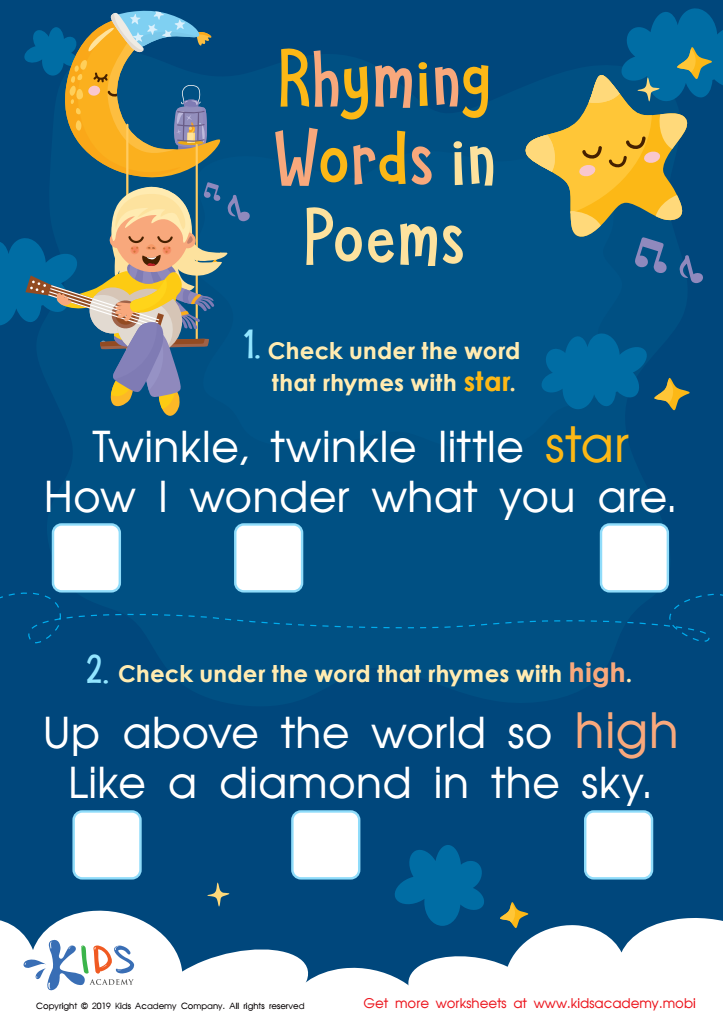

Rhyming Words in Poems Worksheet
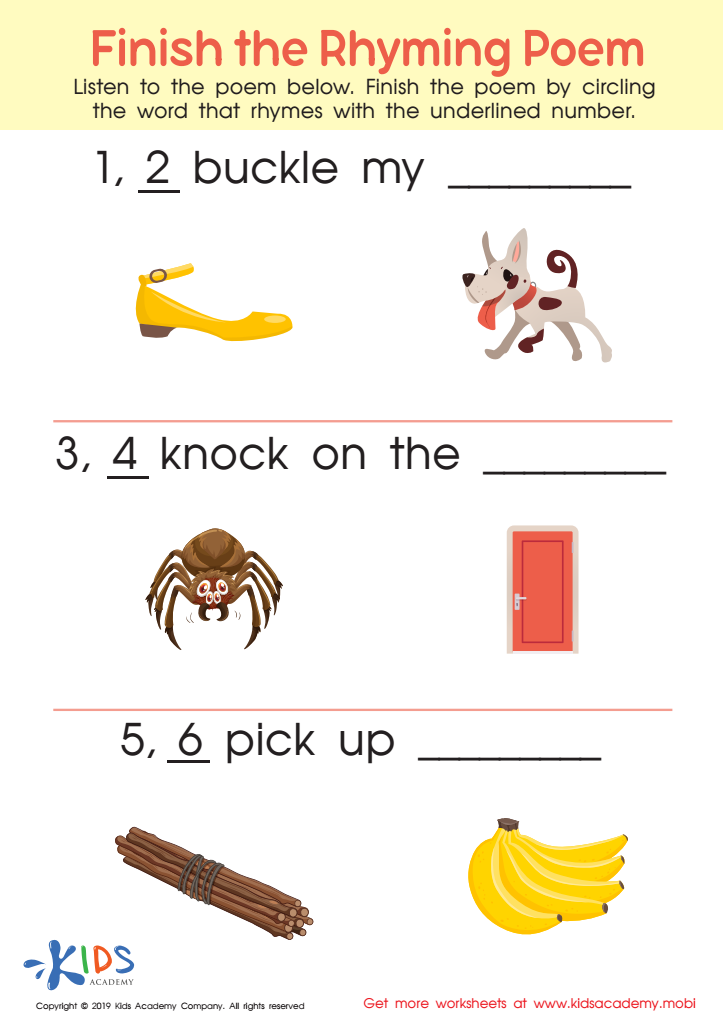

Finish Rhyming Poem Worksheet
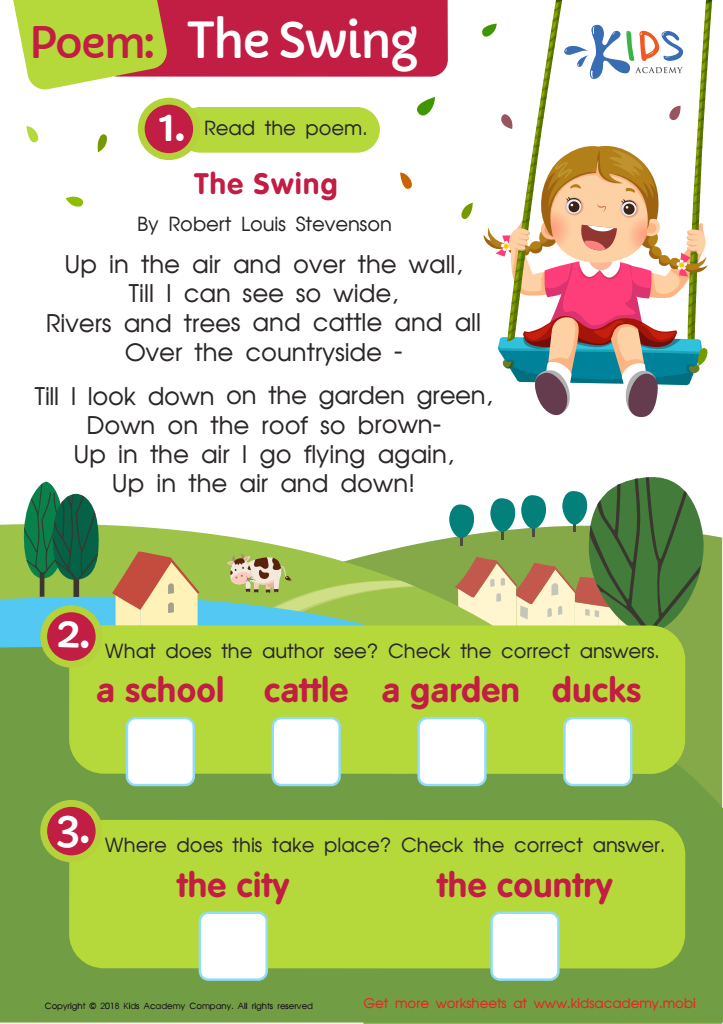

Poem: The Swing Worksheet
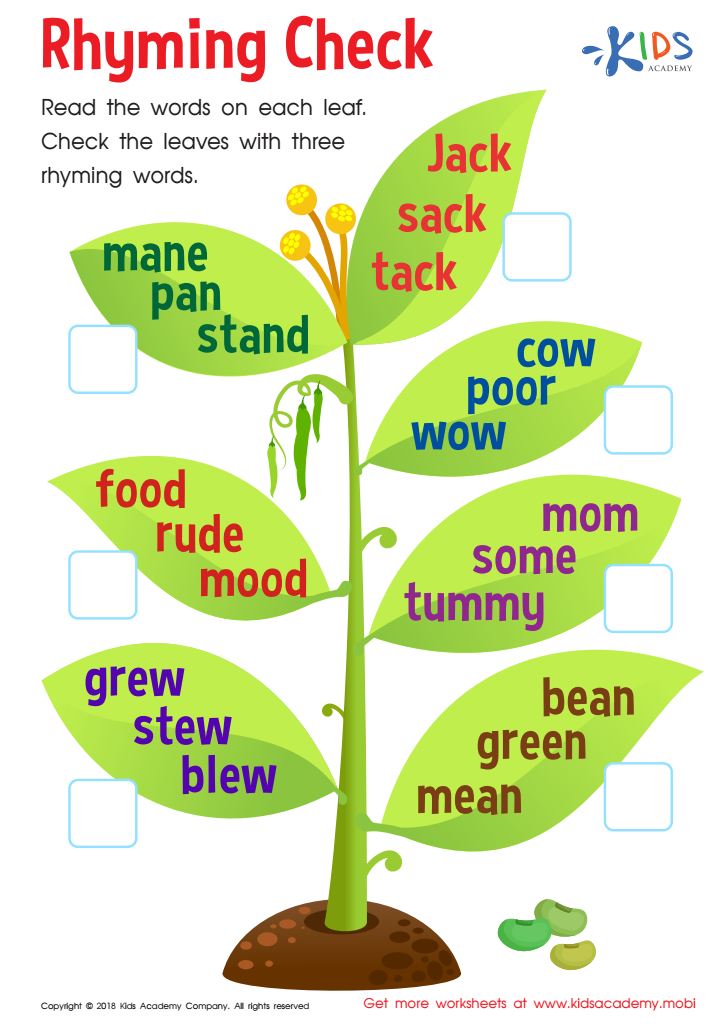

Rhyming Check Worksheet
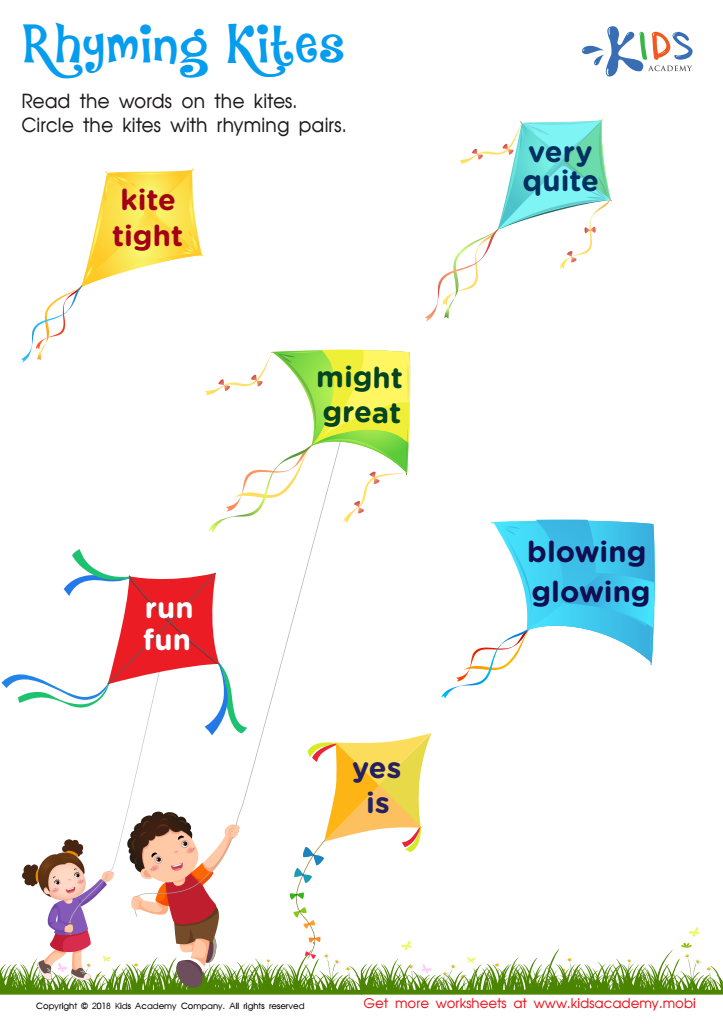

Rhyming Kites Worksheet
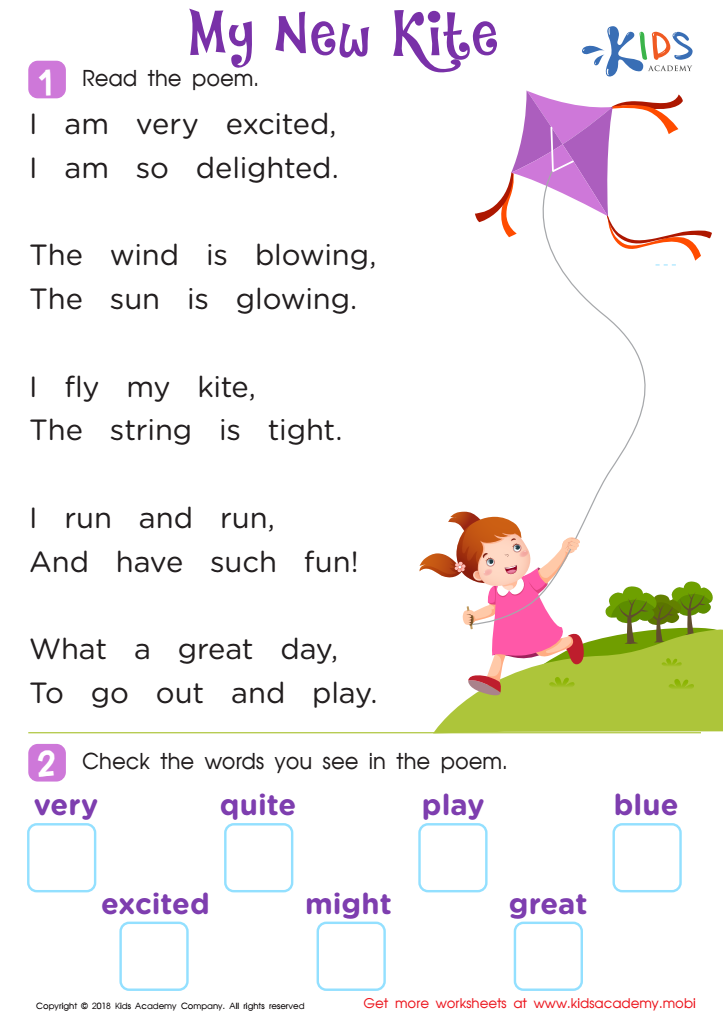

Poem: My New Kite Worksheet
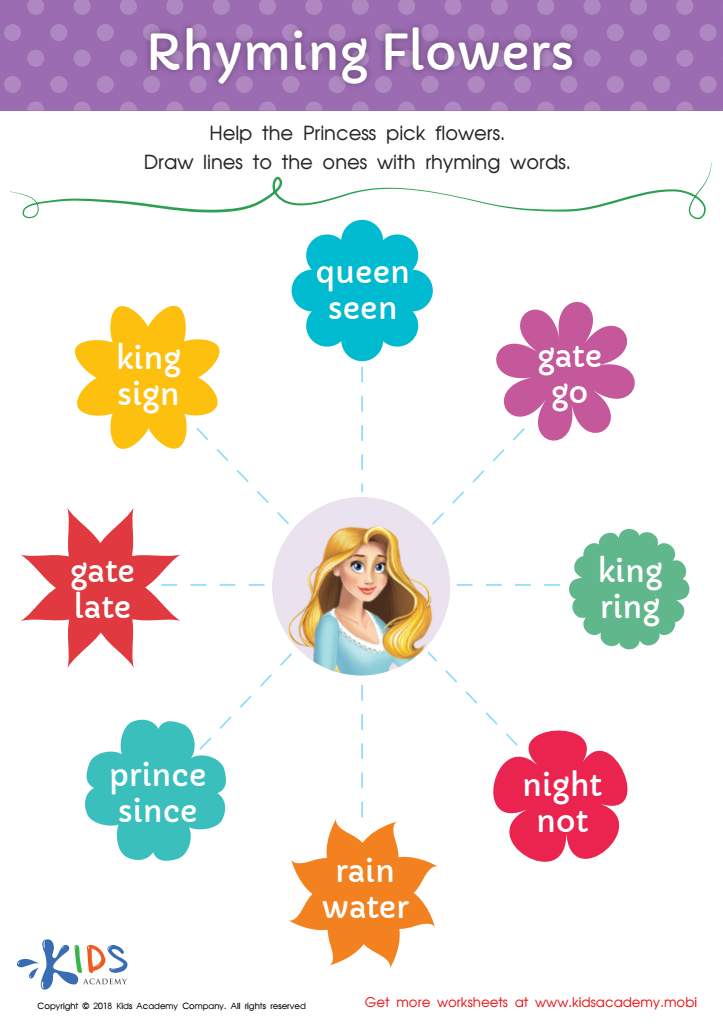

Rhyming Flowers Worksheet


Rhyming Words Rhyming Worksheet
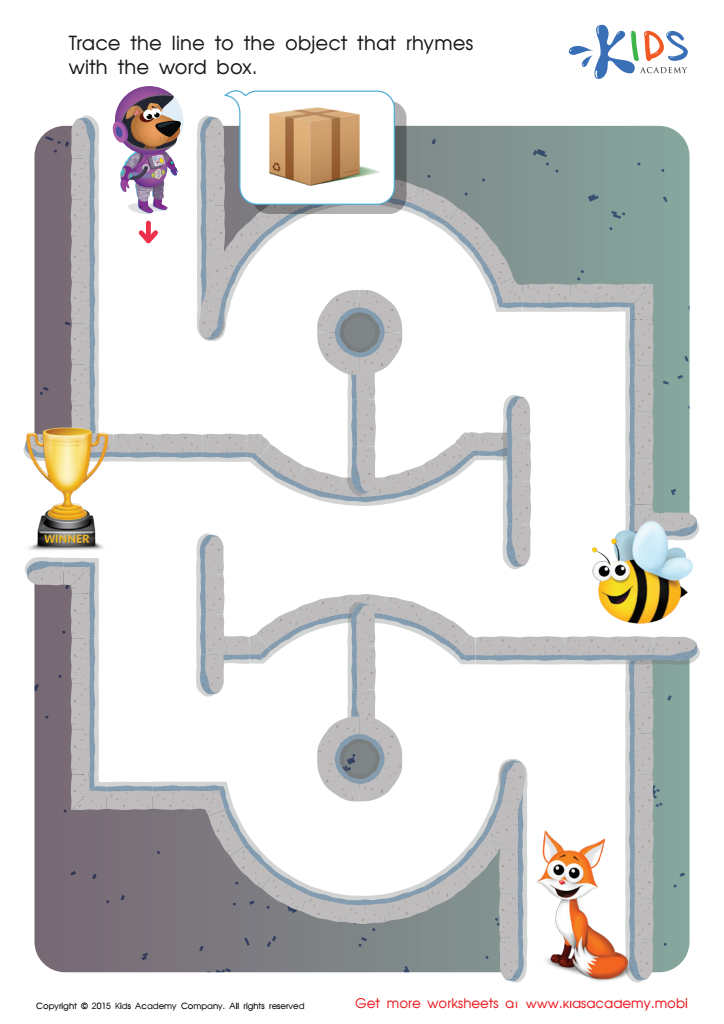

Box Rhyming Words Worksheet
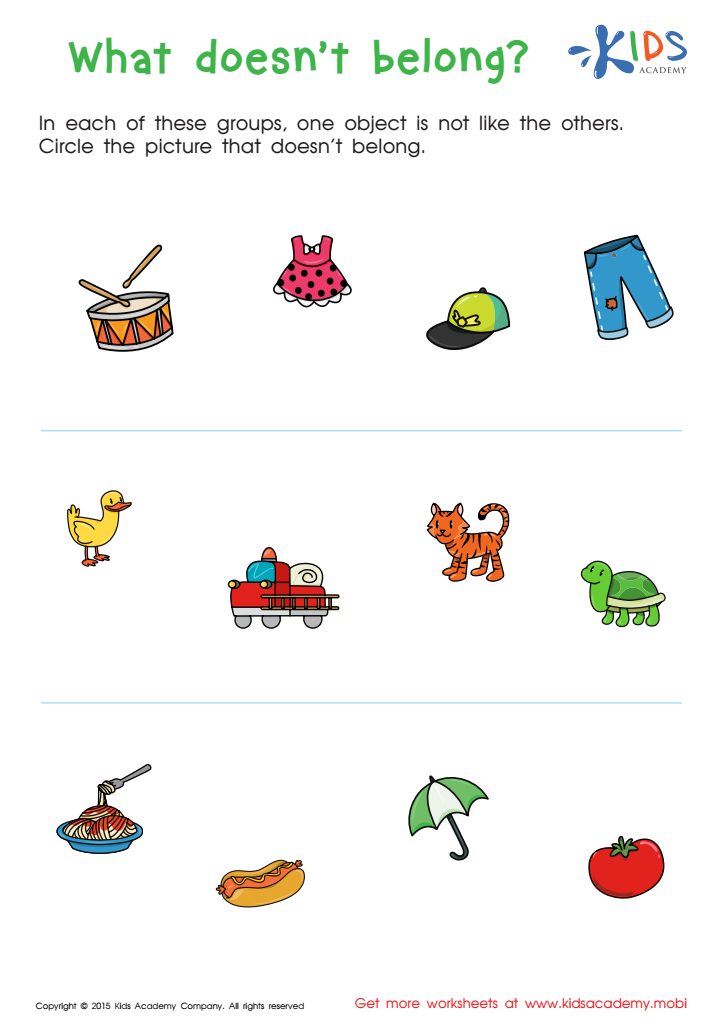

First Words: What Doesn't Belong Worksheet
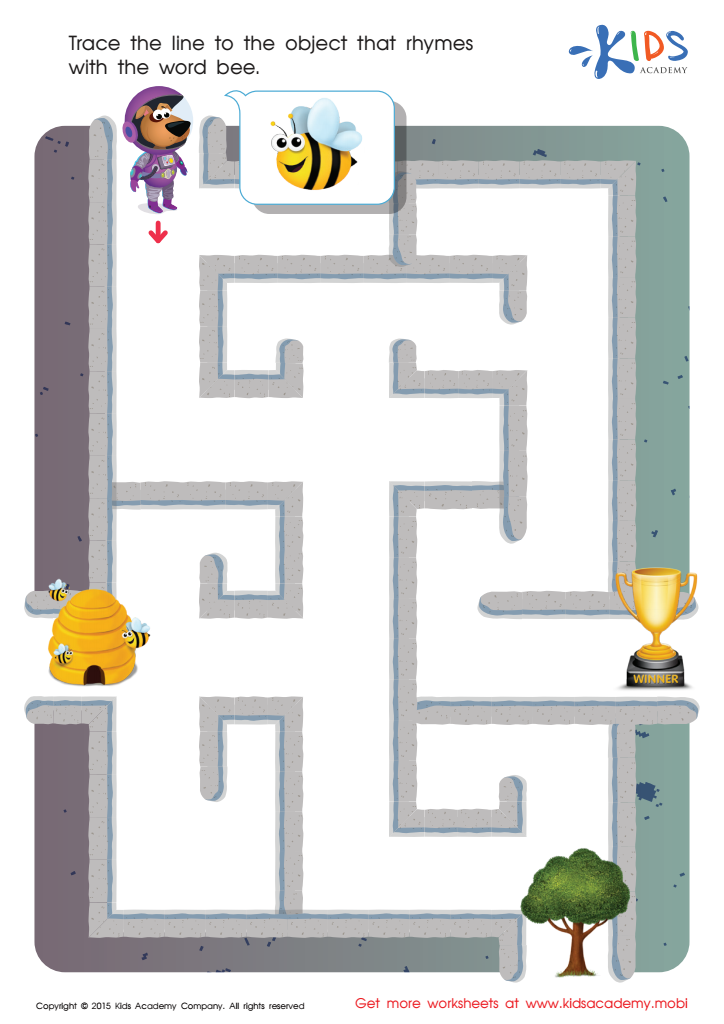

Bee Rhyming Words Worksheet
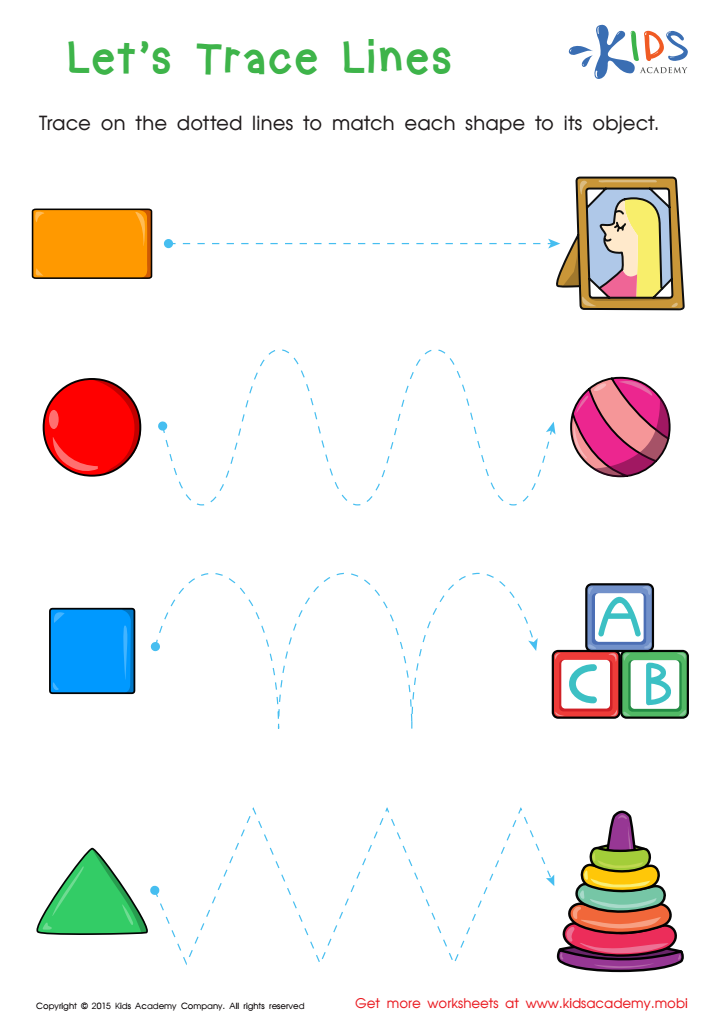

First Words: Let's Trace Lines Worksheet


First Words: Picture Rhymes Worksheet
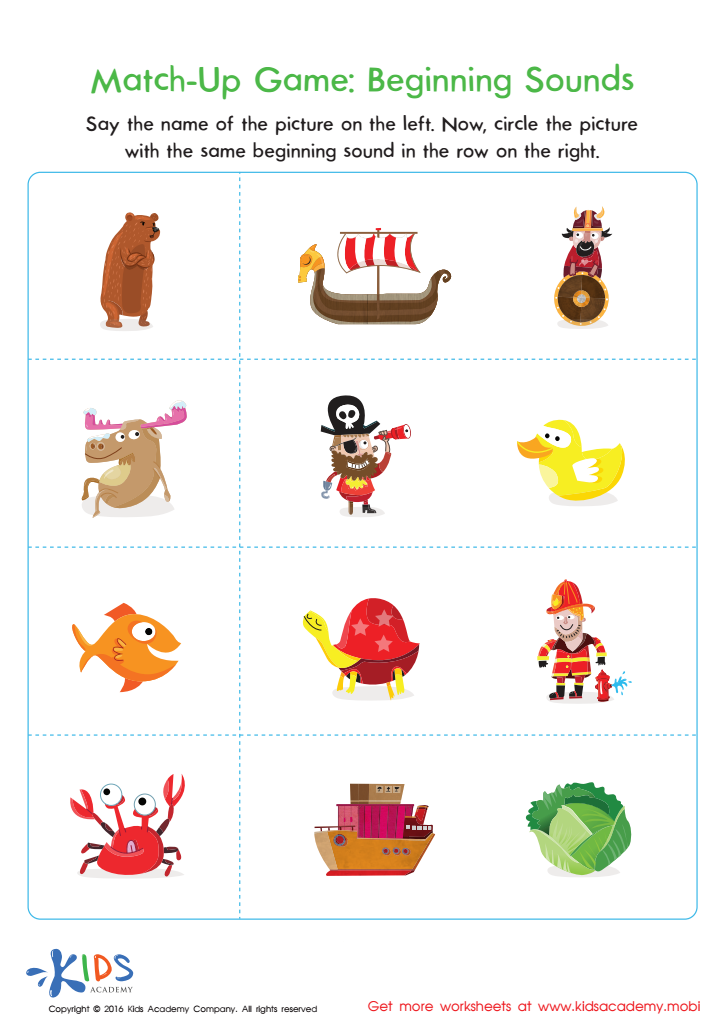

Match–Up Game: Beginning Sounds Worksheet
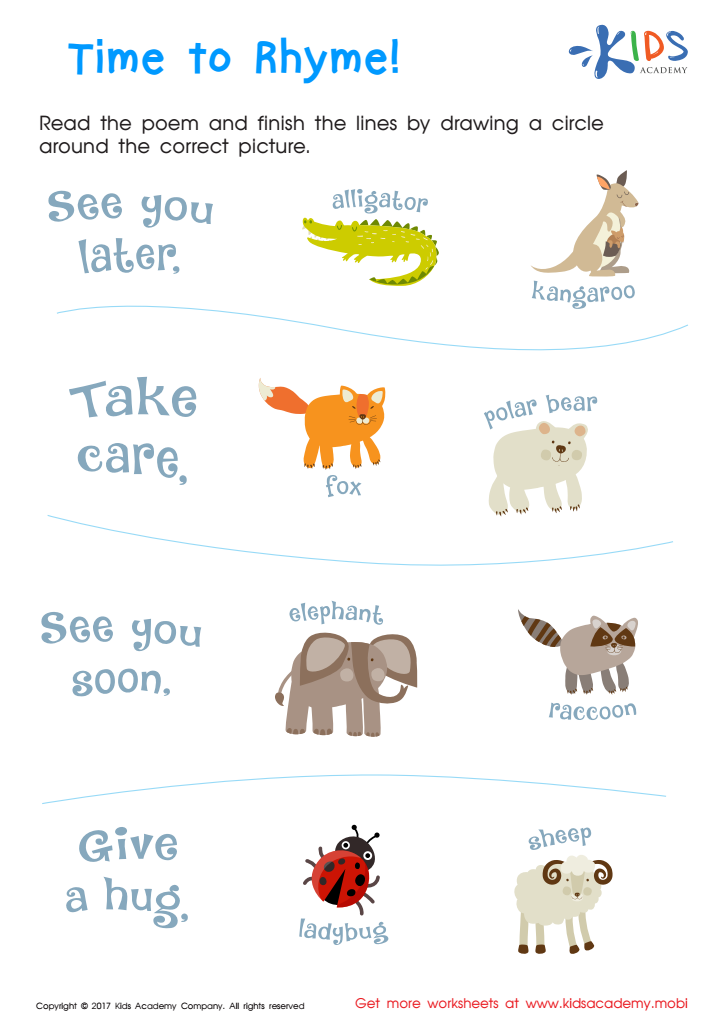

Time to Rhyme Rhyming Worksheet
Normal rhyming words play a crucial role in the early literacy development of children aged 5-9, and both parents and teachers should recognize their importance. Rhymes help to develop phonological awareness, which is the ability to hear, identify, and manipulate individual sounds in words. This skill is foundational for learning to read, as it supports understanding how letters and sounds correspond.
Moreover, rhyming words enhance memory and recall. The repetitive and musical nature of rhymes makes information more engaging and easier for young minds to remember. This can be particularly beneficial in helping children expand their vocabulary, as they will become more familiar with new words through the fun and repetitive context of rhymes.
Engaging with rhymes also fosters creativity and imagination. Rhyming exercises, such as creating rhyming pairs or completing rhyming couplets, encourage children to think creatively and explore language in a playful manner. This can create a positive and enjoyable learning environment, motivating them to participate actively.
Lastly, rhyming is a social tool that helps build communication and bonding. Shared rhymes and songs offer interactive experiences that bridge the gap between generations, allowing parents and teachers to connect with children in meaningful ways. Understanding and using rhyming words thus contributes to the overall cognitive and social-emotional development of children.

 Assign to My Students
Assign to My Students

















